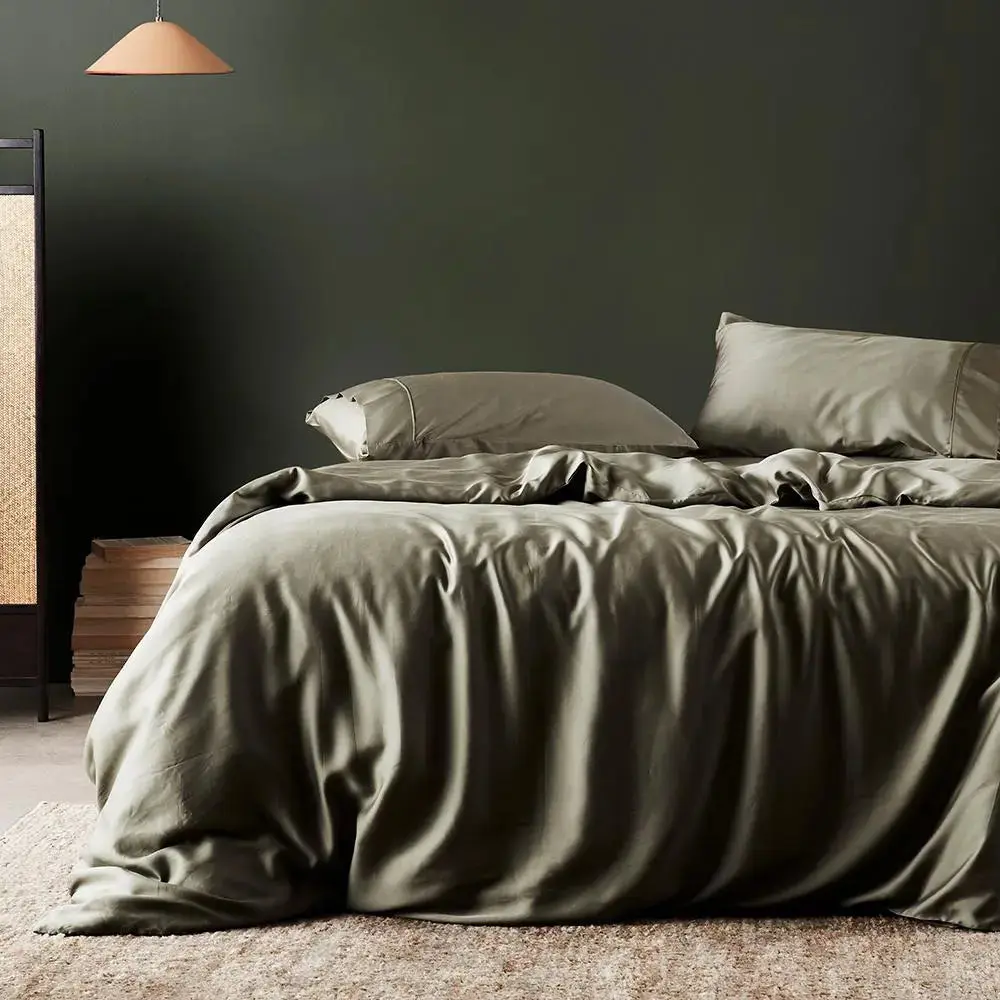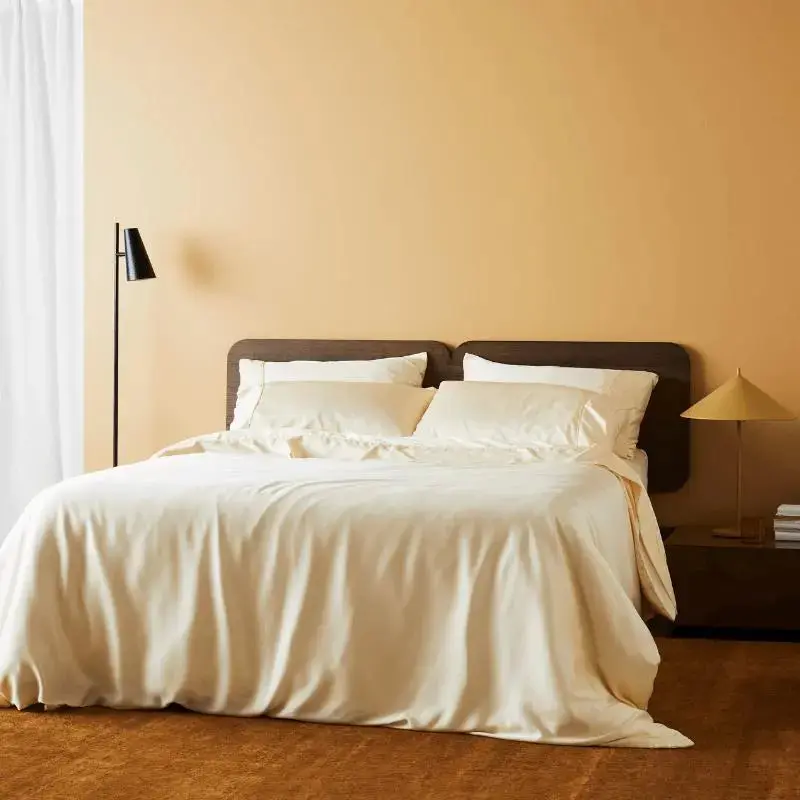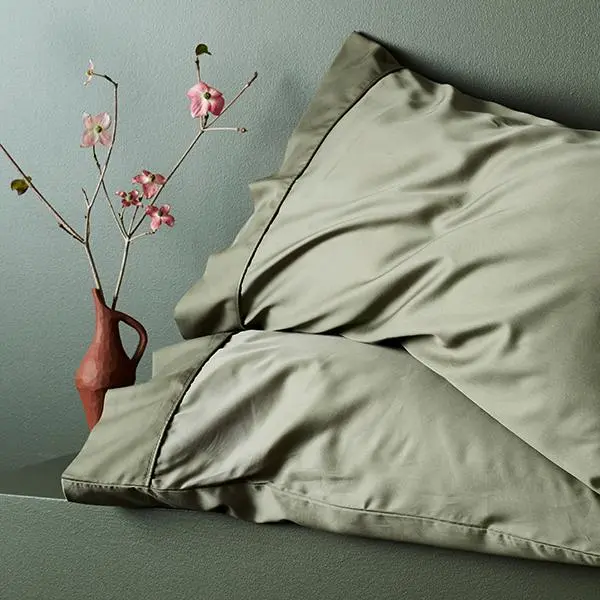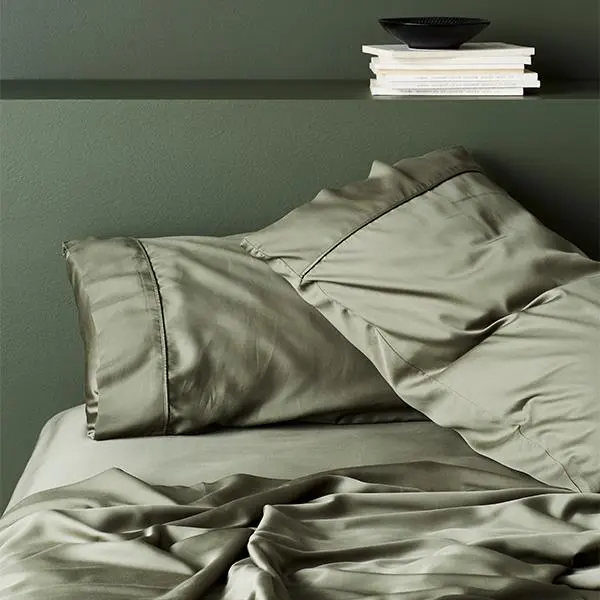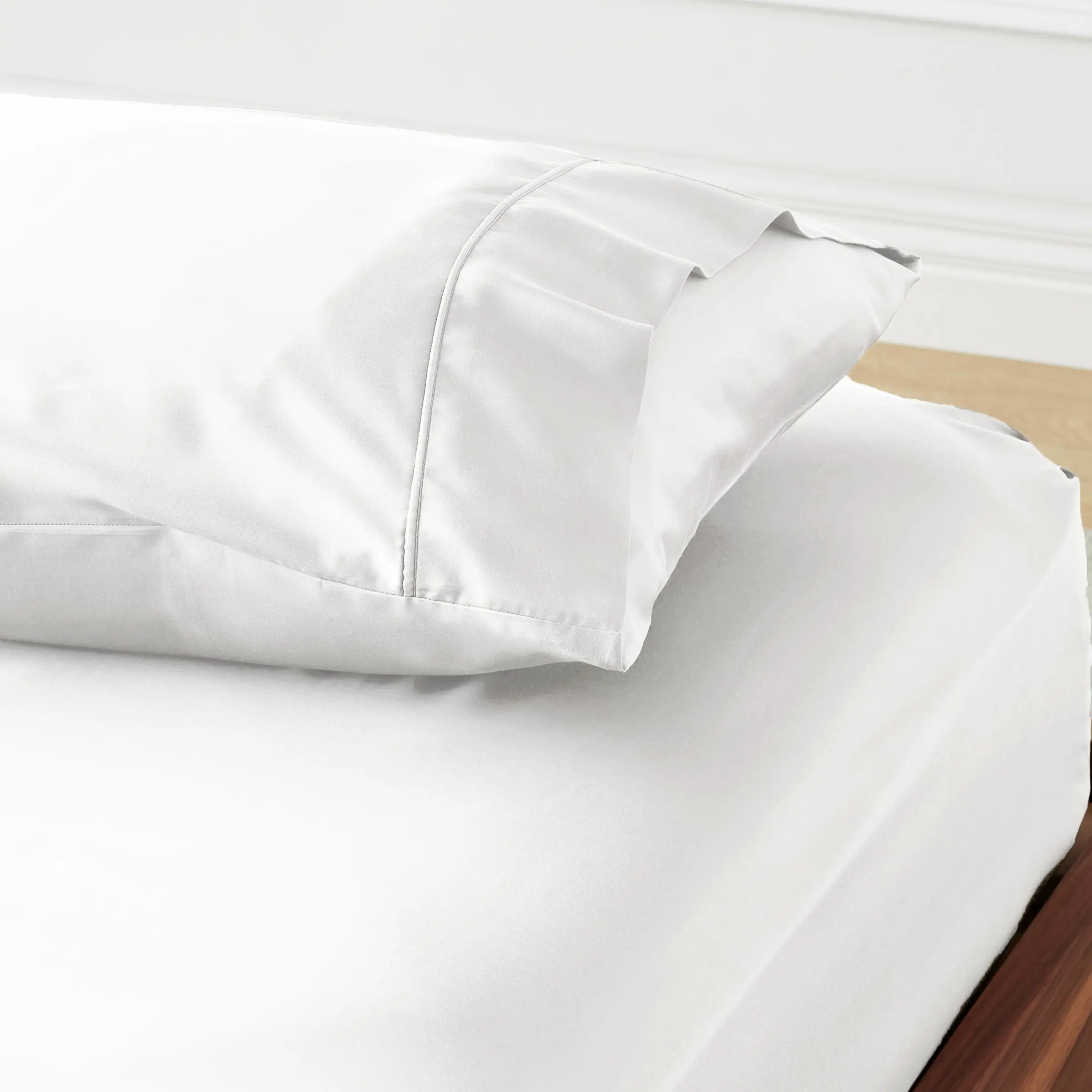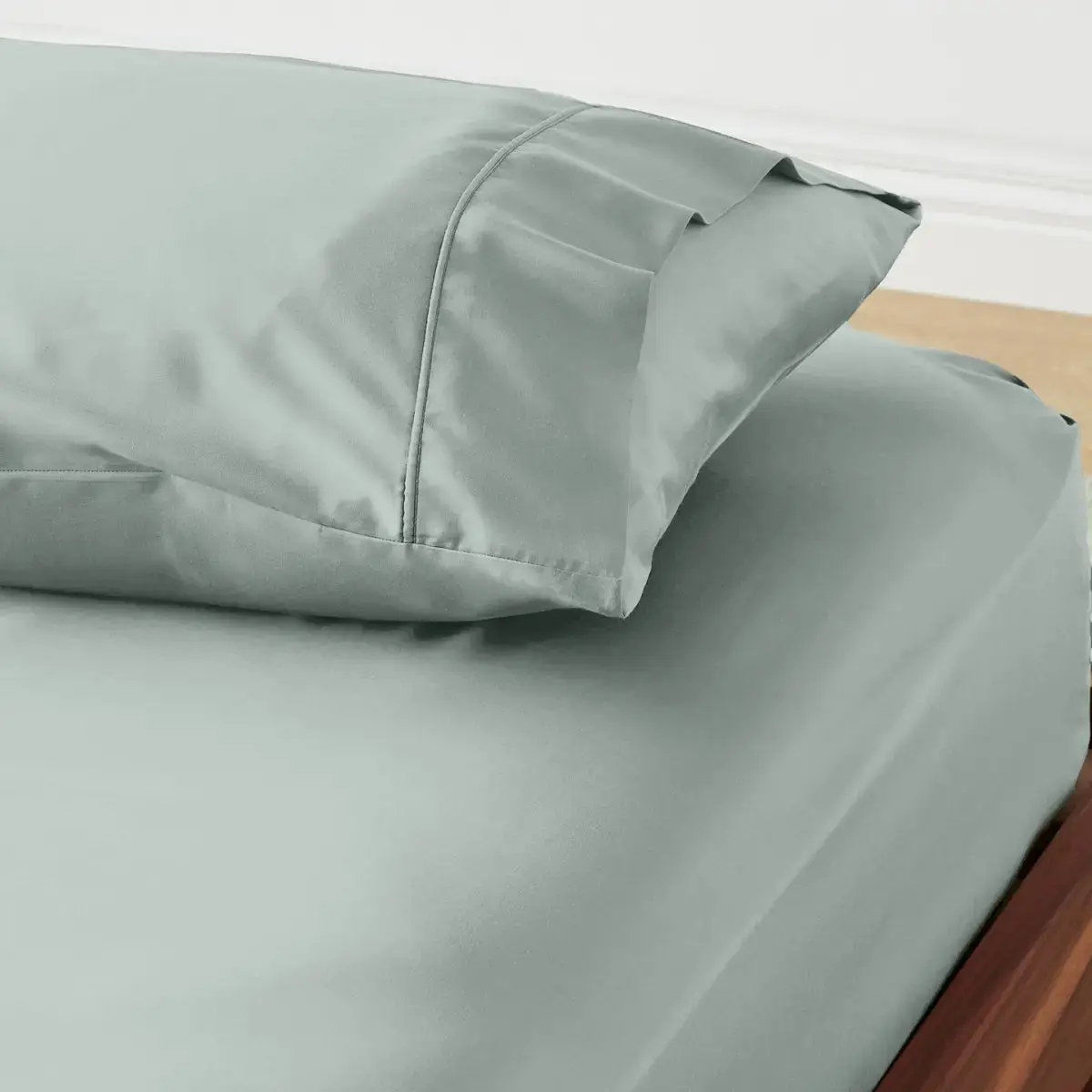When I think of satin sheets, I am immediately transported to a world of luxury and comfort—a world where sleep is uninterrupted and the skin is pampered. My initial fascination with satin began as I delved into finding the perfect sleeping environment, not just for indulgence but also for health reasons. Sensitive skin can turn the simple act of resting into a night-long battle against irritation, and I was determined to find a solution.
My search led me to discover the unique qualities of satin sheets, and I was intrigued by their potential benefits. Having heard diverse opinions and experiences, I embarked on a journey to explore and understand the relationship between satin sheets and sensitive skin. Along the way, I've learned what makes these sheets unique, their advantages and disadvantages, and how to care for them properly.
In sharing my findings, I hope to help others who, like me, have sensitive skin and struggle to find bedding that doesn't exacerbate their condition. Could satin sheets be the ultimate solution we've been looking for? Let's delve into the silky world of satin and uncover the truth.
Are Satin Sheets good for people with sensitive skin?
Satin sheets are not just any ordinary bedding. Their distinct feel and appearance set them apart from the usual cotton or flannel sheets. The key lies in the weave. Satin sheets are produced with a weave that allows threads to float over each other, creating a smooth surface with a lustrous sheen. This method of weaving results in fewer points of contact with the skin, which theoretically should reduce irritation.
The fabric is often composed of silk, nylon, or polyester, giving it a slippery and cool touch that many find luxurious. This smoothness initially drew me to investigate satin sheets as a potential ally for my sensitive skin. The thought of sliding into bed and not encountering any friction or roughness was incredibly appealing.
But satin sheets offer more than just a smooth texture. Their unique weave also means they are less absorbent than other fabrics. This property can help maintain the skin's natural moisture levels, which is crucial for those of us dealing with sensitivity and dryness.
Satin Sheets and Sensitive Skin: The Connection
The connection between satin sheets and sensitive skin is primarily about reducing friction. Sensitive skin can be prone to irritation from even the slightest abrasions, and the soft, smooth surface of satin is less likely to cause such issues. When I first switched to satin sheets, I noticed a significant decrease in the redness and itchiness that I often experienced with other types of bedding.
Another aspect of this connection is the hypoallergenic nature of high-quality satin sheets. They are less likely to harbor dust mites and other allergens, which can be a significant concern for those with skin sensitivities. The tight weave of satin fabric makes it more difficult for particles to penetrate and accumulate, contributing to a cleaner sleep environment.
Furthermore, satin's cool touch may also benefit sensitive skin. Overheating at night can lead to sweating, which can irritate sensitive skin. Satin sheets can help regulate body temperature, providing a cooler sleep surface that may prevent irritation caused by excessive warmth and sweat.
The Truth About Satin Sheets: Pros and Cons
Embarking on a quest to evaluate the true worth of satin sheets, I meticulously gathered insights from various sources and personal experiences. Let’s delve into the myriad of pros and cons that emerged from my exploration.
Pros
Smoothness and Reduced Friction: Satin sheets provide a silky-smooth surface that reduces friction against the skin. This has been a game-changer for me, as it helps to minimize irritation and discomfort that rougher bedding materials can cause.
Hypoallergenic Qualities: For allergy sufferers, the tight weave of satin can help keep allergies at bay, contributing to a cleaner and more hypoallergenic sleeping environment.
Temperature Regulation: Satin's cool-to-the-touch nature can help regulate body temperature during sleep, providing a more comfortable experience for those who tend to overheat.
Cons
Care Requirements: Satin sheets require delicate care, which can be a hassle. They often need to be washed separately and on a gentle cycle, and they may not be as durable as other materials.
Cost: High-quality satin sheets can be pretty expensive. This investment may only be feasible for some, especially if you're not confident they'll alleviate your sensitive skin issues.
Slipperiness: While the smoothness of satin is a benefit, it can also be a drawback. The sheets can slip off the mattress or cause you to slide around, which can be annoying for some sleepers.
How to Choose the Best Satin Sheets for Sensitive Skin?
Selecting the best satin sheets for sensitive skin requires careful consideration of several factors. Here's how I approached the process:
-
Material: I looked for sheets that were either made of pure silk satin or had a high-quality blend of satin with hypoallergenic properties. Pure silk is naturally hypoallergenic and soft, which is ideal for sensitive skin.
-
Weave: The weave of the satin is crucial. A charmeuse weave, for example, has a more luxurious feel and is gentler on the skin compared to a satin weave which might be a bit stiffer.
-
Thread Count: While a high thread count can often indicate quality, it's not the sole factor to consider. I found that the smoothness of the weave is more important than thread count when it comes to satin sheets.
The Science Behind Satin Sheets and Sensitive Skin
The scientific rationale for using satin sheets for sensitive skin aligns with their physical properties. The less abrasive surface reduces friction, preventing skin irritation and exacerbating existing skin conditions. In the scientific community, the importance of a low-friction environment for healing and maintaining sensitive skin is well-documented.
Moreover, the hypoallergenic nature of high-quality satin can play a role in reducing allergic reactions. Allergens like dust mites find it harder to penetrate the tightly woven fabric, which can lead to fewer allergy-induced skin problems.
While there aren't extensive clinical studies explicitly focusing on satin sheets and sensitive skin, the principles of textile dermatology support the idea that smoother, less abrasive fabrics can benefit individuals with sensitive skin.
Caring for Your Satin Sheets
Proper care is essential to maintain the integrity and benefits of satin sheets. Here's how I ensure my satin bedding remains in top condition:
-
Washing: I always wash my satin sheets on a gentle cycle with a mild detergent. Hot water and harsh chemicals can break down the fibers and strip away the silky feel.
-
Drying: It's best to air dry satin sheets to preserve their sheen and prevent shrinkage. If you must use a dryer, choose a low heat setting and remove the sheets while they're still slightly damp.
-
Ironing: If wrinkles are a concern, I use a cool iron on the reverse side of the sheets. High heat can scorch satin, so ironing with care is important.
Conclusion: Are Satin Sheets the Ultimate Solution for Sensitive Skin?
After extensive research and personal experience, I've concluded that while satin sheets are not a panacea for all sensitive skin woes, they do offer significant benefits that can make them a valuable addition to the bedding of those with skin sensitivities. The smoothness, hypoallergenic properties, and temperature regulation capabilities of satin can contribute to a more comfortable and less irritating sleep experience.
However, it's important to remember that individual experiences can vary, and what works for one person may not work for another. If you're considering satin sheets for sensitive skin, it's worth trying them, with the understanding that they're one piece of the broader skin care puzzle.
In my quest to improve my sensitive skin's condition, satin sheets have been a positive step forward. They've transformed my bed into a haven of comfort, and I've noticed reduced skin irritation since making the switch. If you've been searching for a solution to your sensitive skin challenges, satin sheets are worth exploring.



